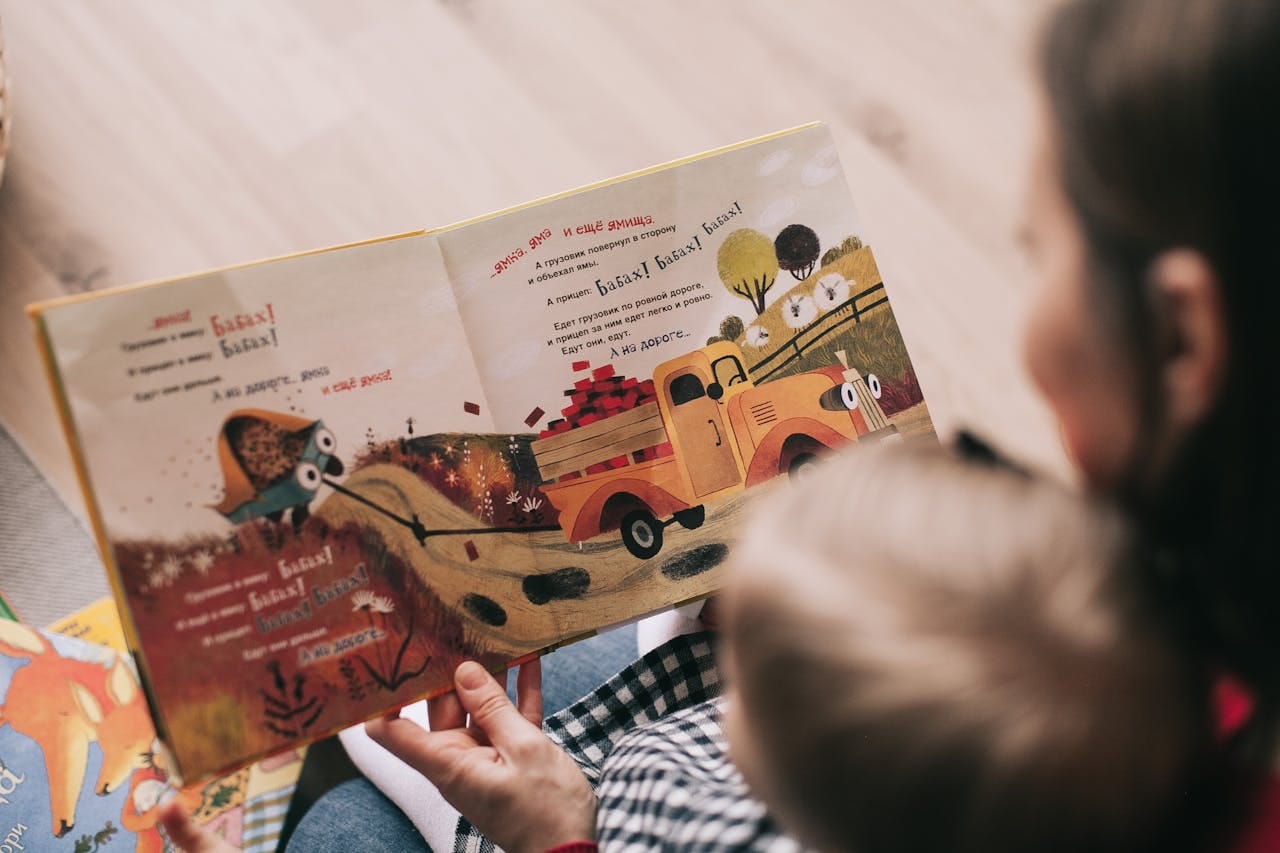Introducing books to your baby early on is more than just a bonding experience; it’s a critical step in fostering their cognitive, emotional, and language development. Studies show that reading to infants helps develop essential brain connections, strengthens parent-child relationships, and instills a lifelong love of learning. Even before they can speak, babies benefit from hearing words, seeing pictures, and feeling the rhythm of stories, laying the groundwork for future literacy skills.
In this article, we’ll explore the profound benefits of reading to your baby, backed by expert research and practical insights.
Why Reading Early Matters
Cognitive Development: From the moment they are born, babies’ brains are like sponges, absorbing new information at an incredible rate. Reading stimulates their growing brains by introducing them to sounds, shapes, and patterns. According to the American Academy of Pediatrics, shared reading promotes neural pathways associated with language and literacy skills.
Language and Vocabulary Building: Babies may not understand words right away, but exposure to language through books lays the foundation for their future vocabulary. The repetition of sounds and rhythms in stories helps babies begin to recognize words and associate them with objects, fostering early language comprehension.
Emotional and Social Benefits
Strengthening the Parent-Child Bond: Reading together is an intimate activity that creates a sense of security and closeness. Your voice, combined with the warmth of physical closeness, helps soothe and calm your baby. Over time, these moments become cherished rituals that deepen your connection.
Encouraging Emotional Understanding: Stories often feature characters experiencing emotions like joy, sadness, or surprise. Reading about these emotions helps babies begin to understand and recognize feelings in themselves and others, paving the way for empathy and social skills.
Early Literacy Skills and Lifelong Learning
Boosting Early Literacy: Reading to your baby introduces them to the mechanics of books—turning pages, following a narrative, and the concept of beginning and end. These skills will become essential when they start reading independently.
Cultivating a Love for Books: Babies exposed to books early on are more likely to develop a positive attitude toward reading as they grow. This love for books can translate into stronger academic performance later in life, as reading is a fundamental skill for learning across subjects.
Tips for Reading to Your Baby
- Start Early: Begin as soon as possible—even newborns benefit from hearing the rhythm of your voice.
- Choose Age-Appropriate Books: Look for board books or cloth books with simple text, bright pictures, and durable pages.
- Engage Your Baby: Use exaggerated expressions, different voices for characters, and point to pictures as you read.
- Keep It Short and Sweet: Babies have short attention spans. Aim for brief reading sessions and gradually increase the time as your baby grows.
What Science Says About Early Reading
Research underscores the importance of early exposure to books. A study by Zero to Three found that children who are read to from infancy show stronger language and literacy skills by preschool age. These children are also more likely to enter school with a solid foundation for success, both academically and socially.
Another study highlights that reading together contributes to emotional security, as children associate books with positive, loving interactions. This bond not only aids in emotional development but also boosts self-confidence as they grow.
Practical Benefits for Parents
Routine and Structure: Incorporating reading into your daily routine can help establish a sense of predictability for your baby, especially before naptime or bedtime.
Parental Growth: Reading aloud also benefits parents by improving their own storytelling skills and giving them insight into their baby’s evolving interests and preferences.
What Books Should You Start With?
When choosing books for your baby, keep the following in mind:
- Simple and Engaging: Look for books with repetitive text or rhymes that keep your baby’s attention.
- Interactive Elements: Some books feature textures, flaps, or mirrors, which are perfect for stimulating sensory development.
- Colorful Pictures: Bold, high-contrast illustrations capture your baby’s curiosity and encourage visual engagement.
Examples include classics like Goodnight Moon by Margaret Wise Brown or Pat the Bunny by Dorothy Kunhardt.
Conclusion: Start Reading Today
Reading to your baby is one of the simplest yet most impactful things you can do to support their early development. It not only strengthens your bond but also lays the foundation for their cognitive, emotional, and literacy skills. The earlier you start, the more profound the benefits will be—not just during infancy, but throughout their lifetime.
So, grab a book, snuggle up, and embark on a journey of stories and learning that you and your baby will treasure for years to come.

